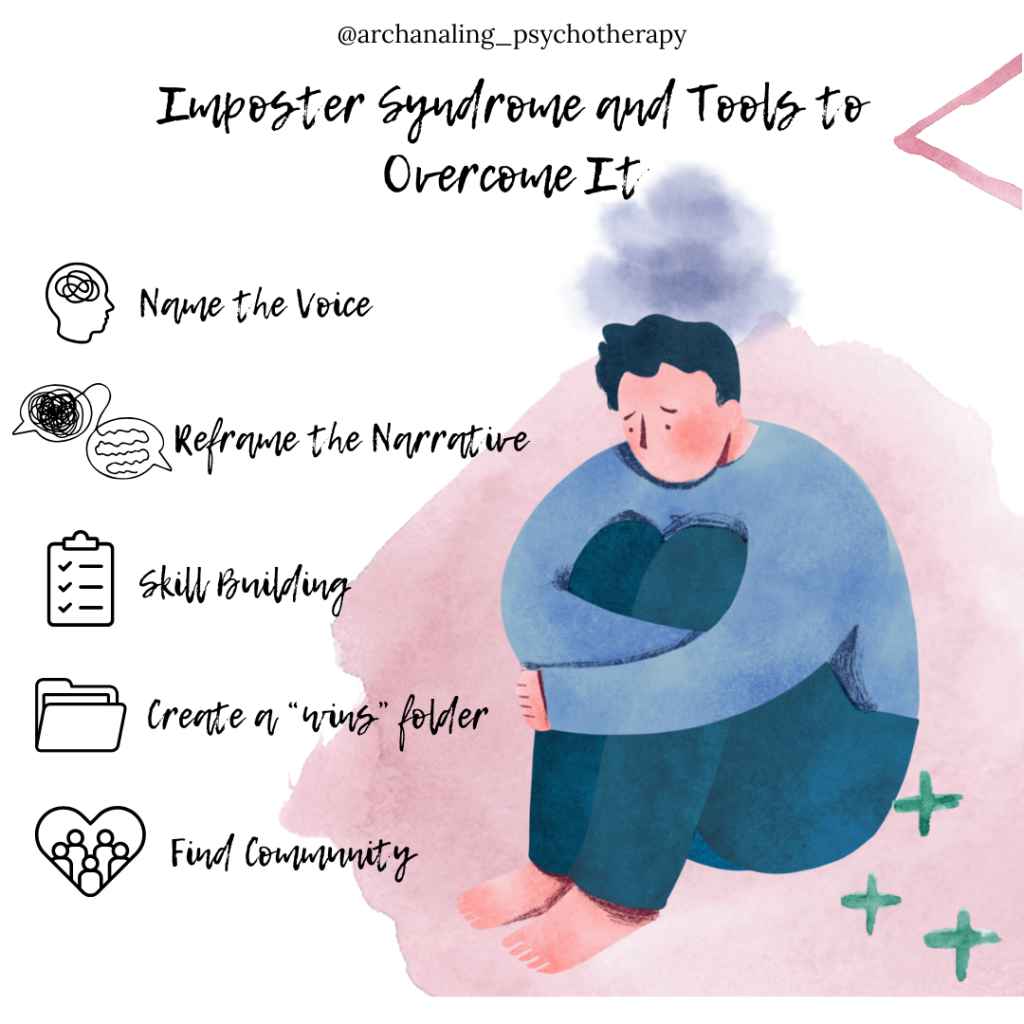Have you ever found yourself in a room, wondering how you got there, secretly feeling like you don’t actually belong?
That creeping doubt comes in saying, “I’m not good enough”, “They’re going to find out I’m faking it”—is what imposter syndrome sounds like. And if you’ve felt it, you’re far from alone.
Imposter syndrome is where people doubt their accomplishments and feel like a “fraud,” despite evidence of their competence. It’s especially common among high achievers, racialized folks, first-generation professionals, and anyone stepping into spaces where they’ve historically been underrepresented.
Where Does Imposter Syndrome Come From?
While it might feel like a personal flaw, imposter syndrome often reflects systemic issues, such as, racism, sexism, classism, and ableism which makes people question their legitimacy in certain spaces. Add in perfectionism, comparison culture, and internalized pressure to “prove yourself,” and you’ve got the perfect storm.
The Toll It Takes
- Chronic self-doubt
- Burnout from overworking to compensate
- Difficulty internalizing success
- Avoiding opportunities due to fear of failure
The good news? Confidence isn’t something you’re born with, it’s something you can build.

5 Tools to Challenge Imposter Syndrome and Build Confidence
1. Name the Voice
The first step is awareness. Begin noticing when the imposter syndrome shows up. Is it when you’re about to speak in a meeting? Apply for a role? Try something new?
Try this: Journal a list of “imposter thoughts” you’ve had recently. Then challenge them with facts. What evidence do you have for your competence?
2. Reframe the Narrative
Instead of “I don’t belong here,” try:
- “I’m still learning, and that’s okay.”
- “It’s normal to feel discomfort when growing.”
- “I bring a unique perspective that has value.”
This shift isn’t about toxic positivity, it’s about grounding yourself in reality rather than fear.
3. Skill-Building as Confidence-Building
Confidence grows from evidence. One of the most empowering ways to combat imposter syndrome is to build your skills intentionally.
Ask yourself: What would help me feel more grounded in my role?
It could be learning how to give presentations, improving communication, or deepening your knowledge in your field. When we master new skills, this builds up our internal confidence and feelings of mastery.
You don’t need to master everything overnight. Progress counts.
4. Create a “Wins” Folder
Keep a digital or physical document of achievements, big or small. A kind email from a client, a finished project, a compliment from a colleague. These moments are receipts. Return to them when the doubt creeps in.
5. Find Community
Shame thrives in silence. When you speak about imposter syndrome with others, you’ll often hear, “Wait… you feel that way too?” Connection normalizes the experience and softens its grip.
Mentors, peer groups, and therapy can offer mirrors to remind you of your worth when you forget.
You Belong Here
Imposter syndrome doesn’t mean you’re broken. It means you’re growing, stretching into something new. Confidence isn’t the absence of fear, it’s the willingness to keep showing up anyway.
With time, intention, and skill-building, you don’t just quiet the imposter voice, you begin to trust your own.